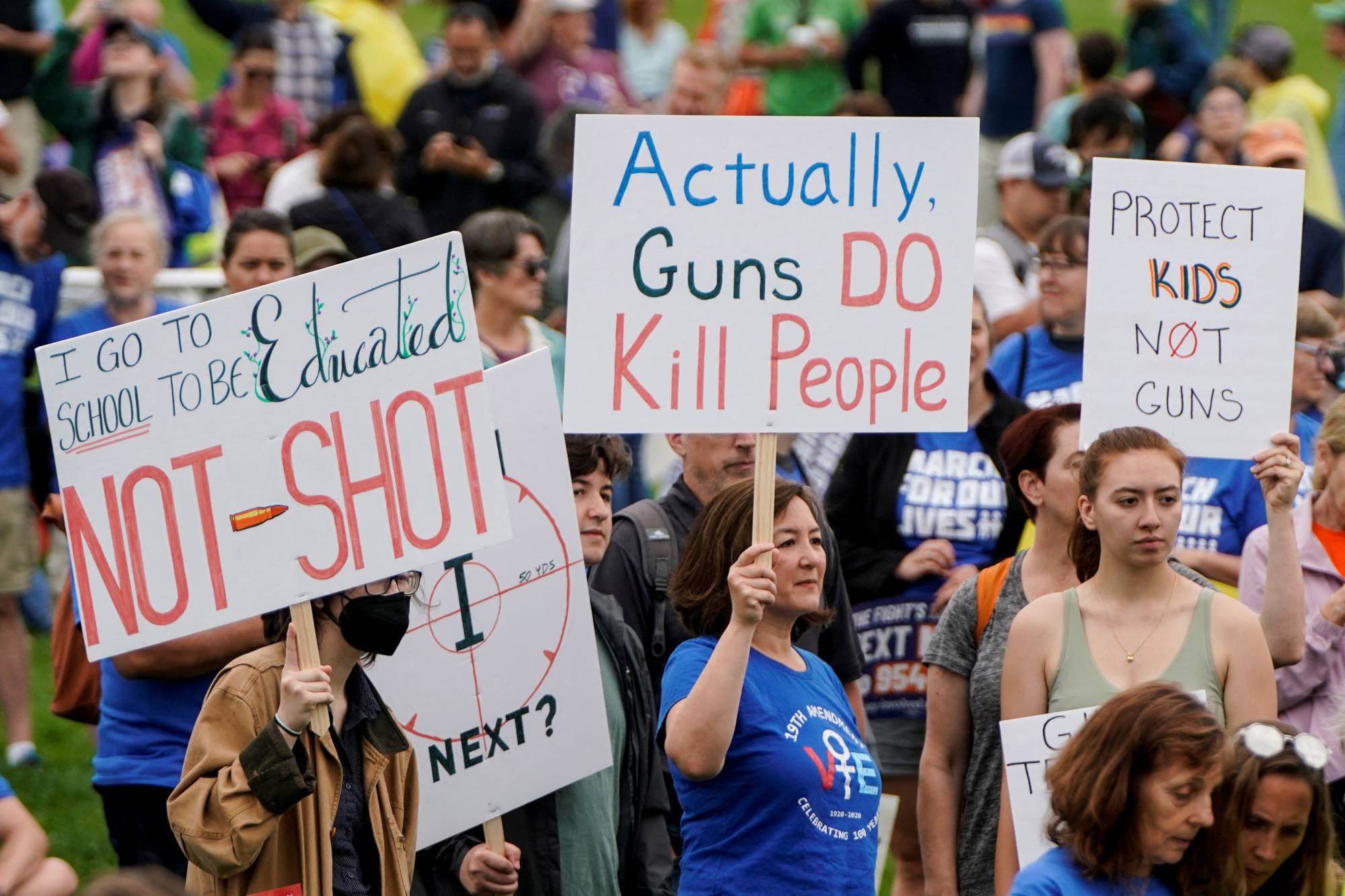The bipartisan gun-safety deal announced Sunday is far from what Democrats would have preferred in the aftermath of the racist gun massacre in Buffalo, New York, and the mass shooting at an elementary school in Uvalde, Texas, but it is considerably more than they hoped for initially.
The proposal, which still has a long way to go before becoming law, focuses less on the "gun” part of gun control and more on other factors, such as a buyer’s mental health or violent tendencies, in a concession to Republican hesitation and the hard political reality that tough limits on sales, let alone outright bans on firearms, are far out of reach.
Although it would not raise the age to buy assault rifles to 21 from 18, the plan would enhance background checks on those younger than 21 before they could take possession of a gun — perhaps the most significant element of the emerging measure. Republicans say enough sentiment exists for a direct age increase but perhaps not enough to forestall a filibuster.



